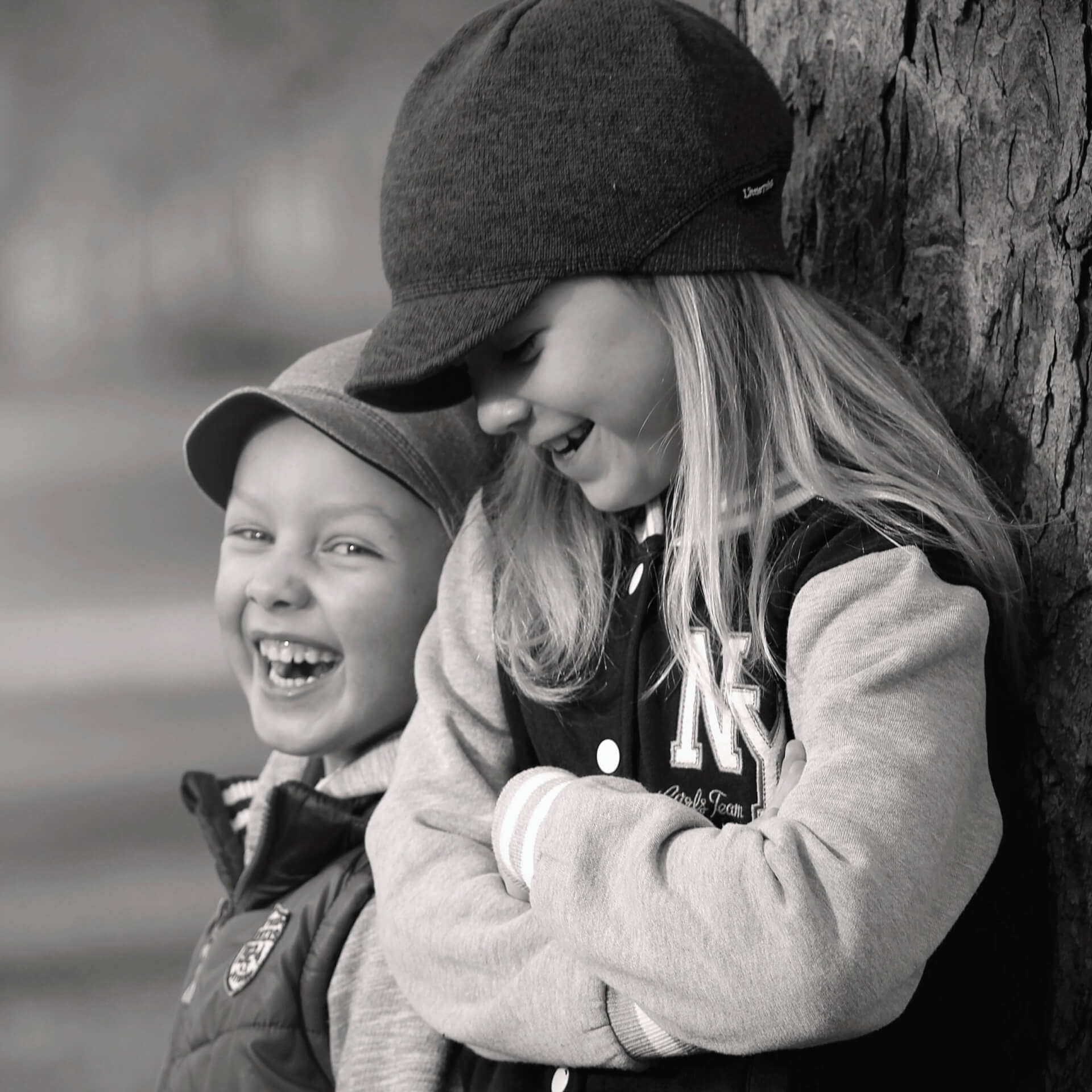
When my husband Daniel became a dad he was realising a long-held dream. Not just to have a family, but also to be a comedian. He was telling dad jokes long before he had an excuse to, but now he has two children who think these jokes are hilarious. Sometimes I worry for his sense […]
When my husband Daniel became a dad he was realising a long-held dream. Not just to have a family, but also to be a comedian. He was telling dad jokes long before he had an excuse to, but now he has two children who think these jokes are hilarious.
Sometimes I worry for his sense of self when fart jokes get old. But right now, when I see him with the kids in uncontrollable fits of laughter, I think he’s onto something.
LAUGHTER BRINGS US TOGETHER
Janet Gibson is a cognitive psychologist and professor at Grinnell College in Iowa, US, who specialises in the psychology of humour. She says that laughter connects us from the very start of life. “Because very young infants can laugh, researchers believe laughter helps lung development, and it helps social skills and bonding between caregiver and infant.”
If you’ve ever made your own baby laugh, you’ll know how it works. There is something infinitely joyful about a laughing little one that makes you both end up having a good chuckle.
Laughter also weaves us into the community around us. Janet says that laughter serves a social function because it happens more with other people than when we’re alone; it’s a cue that you are enjoying each other’s company. “People who share laughter rate the other person as liking them more than those who only conversed without laughter or humour. Humans need other people to survive, so sharing laughter helps foster survival.”
LAUGHTER CAN CHANGE THE DIRECTION OF YOUR DAY
Having a good chortle can also help to reset an unpleasant situation. It can dissipate tension like bursting a bubble. It can make grief feel lighter and anger seem irrelevant. When you laugh with someone, or at a situation, you’re signalling to them (and yourself) that whatever you’re stuck in is not a problem.
Janet says, “Laughter signals we are thinking differently than a moment before. Laughter in response to humour typically means we have the ability to take a different perspective, to reframe the situation, to realise we are not the most important thing.”
And when we laugh, a whole host of physical reactions happen to help this process of reframing.
THE PHYSICAL IMPACT OF LAUGHTER
Merv Neal is the CEO of Laughter Yoga Australia, an organisation that uses laughter as a therapeutic practice. He says, “Cortisol is our stress drug, it gets produced to put us on high alert. When we laugh, it produces serotonin, which negates the levels of cortisol.” And while this is happening, Merv explains that laughter is also calming your brain.
“When we’re stressed, our brain is on high alert … We’re thinking about reacting instead of responding. Laughter helps to calm the brain; possibly the best way it does this is to provide more oxygen to the brain to get it to be able to think more clearly and more calmly.”
All great things to help you move on from an unpleasant place. The trick, of course, is how you find the funny when laughing is the last thing you feel like doing.
LAUGHTER IS A MUSCLE WE CAN ALL DEVELOP
Laughter yoga began in 1995 when Indian physician Dr Madan Kataria combined yogic breathing practices with exercises that encouraged laughter. Having started using comedy and jokes to stimulate laughter he found that once the jokes ran out, so did the laughter. He wanted to find a way to make laughter unconscious.
After watching his wife engage in pranayama breathing exercises, he decided to use breathwork to help create laughter without needing to engage the conscious brain (ie telling jokes or invoking giggles through humour).
Laughter yoga is a process of teaching people to laugh through exercise and practice. Merv believes that laughter is like a muscle that can be developed, so finding the light in serious situations becomes easier to do.
HOW TO KEEP ON LAUGHING
Maybe the key to having more laughter in our lives is to emulate our children. As Merv says, “We are born with a sense of humour, but life knocks the stuffing out of it the longer we live.”
Kids are very quick to laugh. Their jokes may not always twig your funny bone, but our kids are doing something very important. They’re connecting – with you and others. They’re resetting their emotions onto a more positive path. They’re encouraging us to not take life so seriously. And they’re showing us how we might do the same.
So maybe fart jokes aren’t so bad. Maybe it’s time for us to all embrace the dad-joker within, and learn to keep on laughing.























